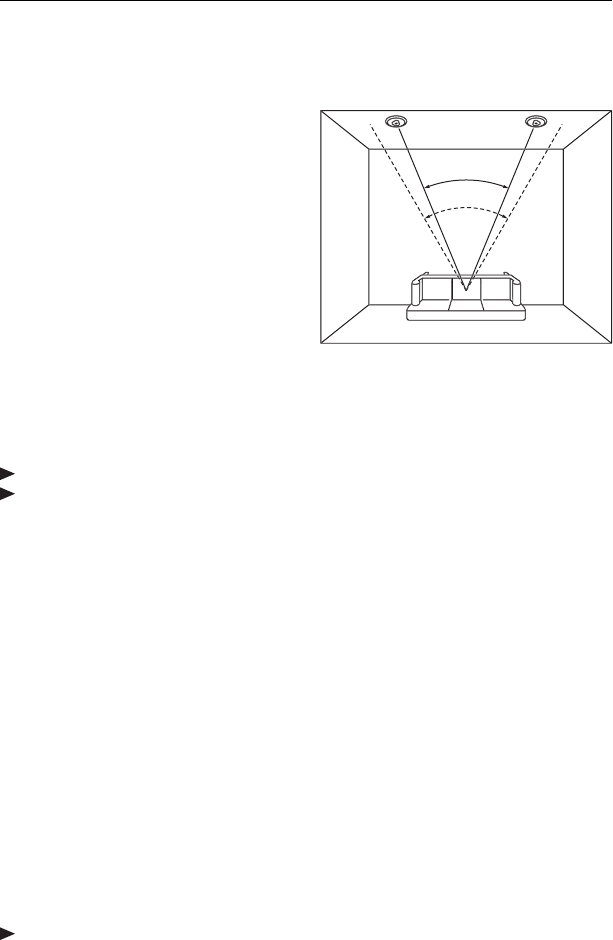
4
STEREO IMAGE
The distance between the speakers determines the width of the stereo image. If the speakers are
placed too close together, the image will be too narrow; too far apart and the blend will suffer,
creating a “hole in the middle.”
We recommend an angular separation
between 45 degrees and 60 degrees (when
viewed from above). This is equivalent to a
separation between the speaker systems that
is about 75% to 100% of the distance from
the listener to either of the speakers.
Creating the illustion of sound coming from
the area between the speakers requires careful
selection of the speaker instalation locations.
The distance from the left speaker to the
listener location should equal the distance
from the right speaker to the listener location.
Use a tape measure to be sure that the
distances from the primary listening position to the speakers are equal. When properly placed,
your speakers will create a continuum of “virtual images” from left to right, with a convincing
illusion of sound outside, in front, and behind the speaker systems.
Separate the speakers by 45 degrees to 60 degrees.
Equalize the distance between each speaker and the listening area.
Aiming the Speakers
Floor-standing and bookshelf speakers are often angled inward to create a more solid stereo
image and to broaden the acceptable listening area. Typical wall or ceiling mounted speakers do
not provide this flexibility.
The AMC650r and AMC680r address this issue with a tweeter that is angle-mounted at 20
degrees. Our studies show this to be the optimum angling for wall or ceiling mounted speakers.
When installing the speakers, they should be oriented such that the tweeters are symmetrically
angled toward the central listening area. The exact angle is not crucial, however, because the
response of the system is excellent from 0 degrees (straight out on its center line) to about 50
degrees off-axis in the direction of the waveguide.
If the AMC650r or AMC680r is used as a wall-mounted center channel speaker, aim the tweeter
up or down as appropriate. If its position is above normal seated ear level, orient the system
with the waveguide angling downward. Conversely, if the system is centrally mounted just at or
below ear level, orient the system to angle the waveguide upward. For use as a surround, see
the following section.
Aim the center of the speaker to your ear level while listening in a seated position.
60
°
4
5
°










